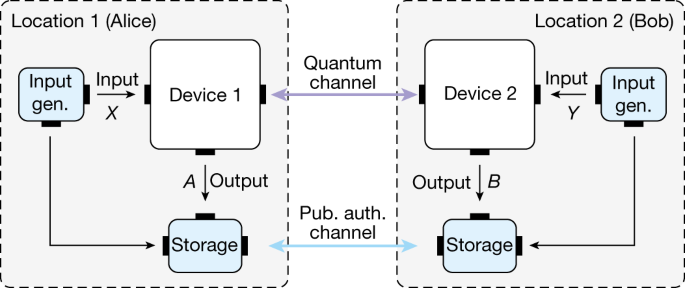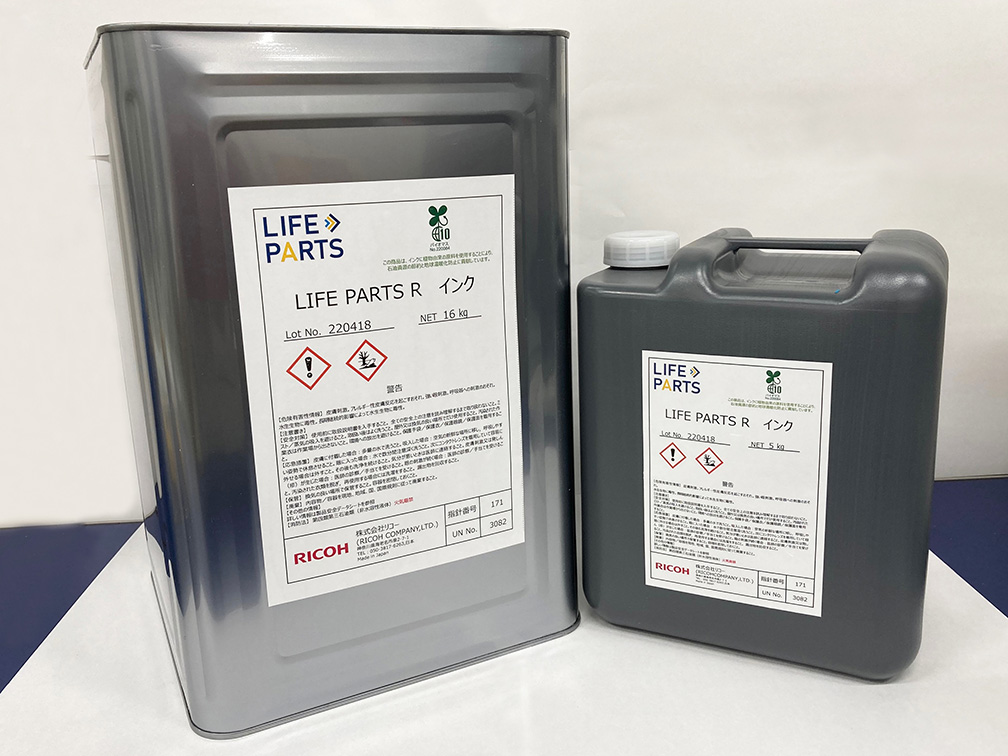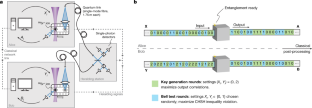2022-07-28 シンガポール国立大学(NUS)
QKDは、鍵交換問題に対して堅牢かつ長期的な解決策を提供します。単一光子の測定と交換を通じて、同一かつ秘密のランダムキーのペアがユーザー間で配布されます。QKDの主な利点は、そのチャネルセキュリティが数学的に破られないことであり、長期的な機密データを保護するための理想的な候補となるものである。
<関連情報>
- https://news.nus.edu.sg/first-demonstration-of-a-secure-quantum-network-with-untrusted-quantum-devices/
- https://www.nature.com/articles/s41586-022-04891-y
遠隔地のユーザを対象としたデバイス非依存型量子鍵配送システム A device-independent quantum key distribution system for distant users
Wei Zhang,Tim van Leent,Kai Redeker,Robert Garthoff,René Schwonnek,Florian Fertig,Sebastian Eppelt,Wenjamin Rosenfeld,Valerio Scarani,Charles C.-W. Lim & Harald Weinfurter
Nature Published:27 July 2022
DOI:https://doi.org/10.1038/s41586-022-04891-y

Abstract
Device-independent quantum key distribution (DIQKD) enables the generation of secret keys over an untrusted channel using uncharacterized and potentially untrusted devices1,2,3,4,5,6,7,8,9. The proper and secure functioning of the devices can be certified by a statistical test using a Bell inequality10,11,12. This test originates from the foundations of quantum physics and also ensures robustness against implementation loopholes13, thereby leaving only the integrity of the users’ locations to be guaranteed by other means. The realization of DIQKD, however, is extremely challenging—mainly because it is difficult to establish high-quality entangled states between two remote locations with high detection efficiency. Here we present an experimental system that enables for DIQKD between two distant users. The experiment is based on the generation and analysis of event-ready entanglement between two independently trapped single rubidium atoms located in buildings 400 metre apart14. By achieving an entanglement fidelity of F≥0.892(23) and implementing a DIQKD protocol with random key basis15, we observe a significant violation of a Bell inequality of S = 2.578(75)—above the classical limit of 2—and a quantum bit error rate of only 0.078(9). For the protocol, this results in a secret key rate of 0.07 bits per entanglement generation event in the asymptotic limit, and thus demonstrates the system’s capability to generate secret keys. Our results of secure key exchange with potentially untrusted devices pave the way to the ultimate form of quantum secure communications in future quantum networks.



